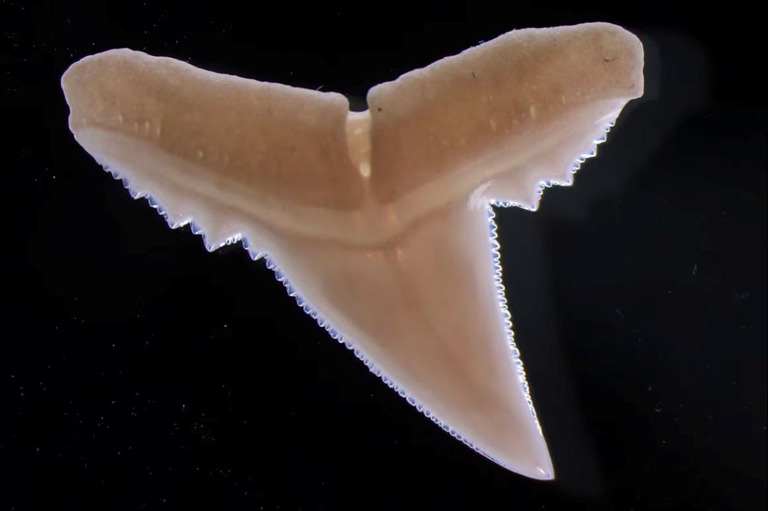最近の{ドイツ}の
研究で、
海の
酸性化がサメの
歯にも
悪い
影響を
与えるかもしれないことが
分かりました。
According to a recent German study, ocean acidification may have a negative impact on shark teeth.
サメの
歯は、
獲物を
食べるために
とても大切です。
Shark teeth are very important for them to hunt their prey.
、
二酸化炭素が
増えると、
海の
水は{
もっと}
酸性になります。
However, as the amount of CO2 increases, seawater becomes more acidic.
によって、サンゴや
貝だけでなく、サメの
歯も
弱く
なる可能性があります。
This can not only weaken corals and shells, but may also weaken shark teeth.
たちは、
水族館で
飼われているサメから
抜けた
歯を
集めて、
普通の
海水と
酸性の
海水に
分けて
8週間入れました。
The researchers collected the shed teeth of sharks kept in aquariums, then placed them in either regular seawater or acidic seawater for eight weeks.
、
酸性の
海水に
入れた
歯は、
表面にひびができたり、
穴があいたりして、{
もっと}
傷んでいました。
The results show that the teeth soaked in acidic seawater developed cracks on the surface, holes, and suffered more damage.
ような
損傷が
増えると、サメがうまく
獲物を
食べられなく
なるかもしれません。
If this kind of damage increases, it may become more difficult for sharks to hunt.
に、
歯が
生え
変わるのが
遅いサメには
大きな
問題です。
Especially for shark species whose teeth are slow to be replaced, this is a major problem.
ただし、
この実験は
抜けた
歯を
使ったので、
実際のサメの
口の
中と
同じとは
言えません。
However, since this experiment uses extracted teeth, it cannot be said that the conditions are exactly the same as those inside a real sharks mouth.
は、サメの
歯が
弱く
なると、サメだけでなく、
海の
生き
物全体にも
影響が
出るかもしれないと
話しています。
According to researchers, if sharks teeth become weaker, it could affect not only sharks but also the entire marine ecosystem.

